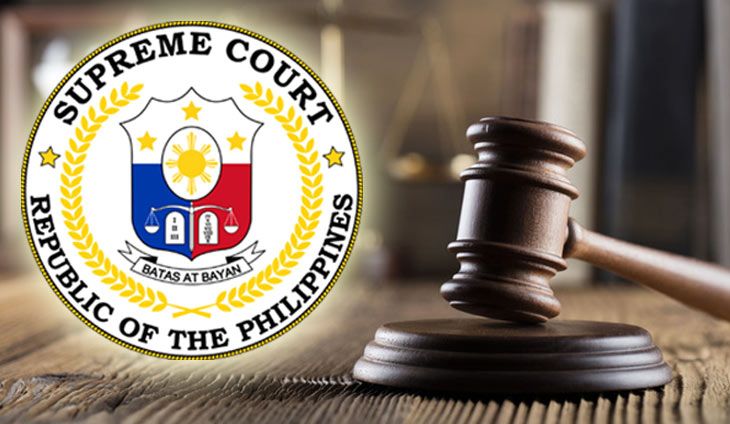The Supreme Court (SC) has called on the government to improve jail facilities to provide clean, adequately equipped, and sanitary facilities for persons arrested and detained.
If the government continuously fail to improve jails or detention facilities in compliance with the standards set by law, the SC said that “when properly invoked,” it will not hesitate to act in upholding the existing rights of the detainees and inmates.

The SC’s declaration was contained in a decision that upheld the Office of the Ombudsman’s (OMB) dismissal of the complaint filed by the Commission on Human Rights (CHR) in 2017 against police officers in Tondo, Manila.
The decision was written by Associate Justice Antonio T. Kho Jr.
In its complaint, the CHR told the OMB that the police officers were operating a so-called “secret detention cell” inside the Raxabago Police Station 1 in Tondo.
The CHR said it discovered three men and nine women cramped in a small, dirty room hidden behind a wooden shelf. Video footage of the room was submitted, and the CHR claimed it was a “secret cell.”
The police officers said the station was overcrowded at the time, holding 96 detainees despite being built for only 50. Thus, they said, a small room had to be used as a temporary holding area while detainees awaited investigation.
They denied it was a “secret cell” since it was visible and had its own entrances.
The OMB dismissed the CHR’s complaint as it noted that the video footage presented by the commission was unclear and simply showed a dark room with a urinal. The OMB also noted that overcrowding in jails is a real issue. The CHR elevated the case to the SC.
In affirming the OMB’s ruling, the SC ruled there was no evidence of a secret detention cell or violation of the Anti-Torture Act of 2009 (Republic Act No. 9745), which bans hidden or solitary cells.
It also found no bad faith on the part of the police officers as it noted that there were no other available spaces to hold the detainees at the time.
But the SC pointed out that detainees still have basic rights under the law, including the right to decent living conditions while in custody.
The SC also said:
“Notwithstanding the clear import of the duty and obligation of the State to provide for a clean, adequately equipped, and sanitary jail for the safekeeping of inmates, this enforcement remains to be seen. With this, the Court calls the policymakers, implementers, and stakeholders to urgently improve jail facilities.
“It does not escape the Court that the improvement of penal facilities may be restricted by a budget which only the Congress can provide and which the Court cannot compel to allocate. This budgetary constraint, however, does not mean that the inmates or detainees in prison or jail are not entitled to their right to live a decent life while in penal facilities.
“The Court can still grant some form of relief to the detainees or prisoners therein, as the ultimate guardian of the Constitution.
“Hence, should the government agencies mandated with the safekeeping of inmates/detainees continue to fail in improving jails or detention facilities in compliance with the standards set by law, then the Court, when properly invoked, will not hesitate to act in upholding the existing rights of the detainees and inmates.
“Given the foregoing, the Court notes that this case involves a custodial facility within the PNP's (Philippine National Police) premises. Custodial facilities are for the holding of arrested persons under custodial investigation; hence, it is a facility for people deprived of liberty for a limited period.
“Despite its temporariness, the people detained therein are also entitled to basic human rights. Necessarily, the PNP's custodial facilities should be clean, adequately equipped, and sanitary, with decent provisions of quarters, food, water, and the like, consistent with the penal facilities envisioned in Republic Act No. 10575, Republic Act No. 6975, and the Nelson Mandela Rules.
“Thus, the Court calls the attention of the PNP to provide custodial facilities that are clean, adequately equipped, and sanitary. Persons deprived of liberty deserve no less.
“Accordingly, the Petition is denied. The Joint Resolution dated July 28, 2020 and the Joint Order dated May 18, 2021 of the Office of the Ombudsman in OMB-P-C-17-0193 are hereby affirmed.
“Let copies of this Decision be furnished to the Congress, the Office of the President, the Department of the Interior and Local Government, the National Police Commission, and the Philippine National Police. So ordered.”